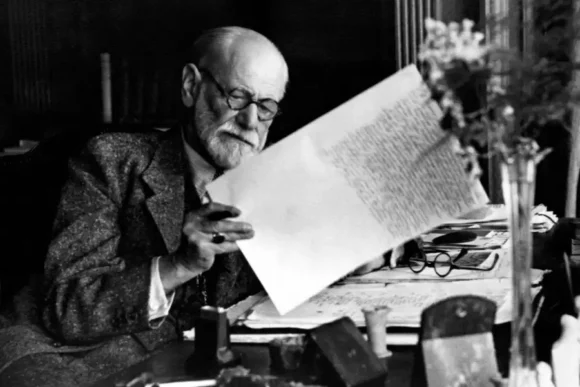Reading The Age of Guilt by Mark Edmundson for New Scientist, 5 July 2023
In his Freudian analysis of what we might loosely term “cancel culture”, Mark Edmundson wisely chooses not to get into facile debates about which of the pioneering psychoanalyst’s ideas have or have not been “proved right”. What would that even mean? Psychology is not so much science as it is engineering, applying ideas and evidence to a purpose. Edmundson, an author and literary scholar, simply wants to suggest that Freud’s ideas might help us better understand our current cultural moment.
In the centre of Freud’s model of the personality sits the ego, the conscious bit of ourselves, the bit that thinks, and therefore is. Bracketing the ego are two components of the personality that are inaccessible to conscious awareness: the id, and the super-ego. The id is the name Freud gives to all those drives that promote immediate individual well-being. Fancy a sandwich? A roll in the hay? A chance to clout your rival? That’s your id talking.
Much later, in an attempt to understand why so many of his clients gave themselves such a hard time (beating themselves up over trivia, calling themselves names, self-harming) Freud conceived the super-ego. This is the bit of us that warns us against misbehaviour, and promotes conformity to social norms. Anyone who’s spent time watching chimpanzees will understand why such machinery might evolve in an animal as ultra-social as Homo sapiens.
Casual descriptions of Freud’s personality model often characterise the super-ego as a sort of wise uncle, paternalistically ushering the cadet ego out of trouble.
But this, Edmundson says, is a big mistake. A power that, in each of us, watches, discovers and criticizes all our intentions, is not a power to be taken lightly.
Edmundson argues that key cultural institutions evolved not just to regulate our appetites; they also provide direction and structure for the super-ego. A priest might raise an eyebrow at your gluttony; but that same priest will relieve you of your self-hatred by offering you a simple atonement: performing it wipes your slate clean. Edmundson wonders what, in the absence of faith, can corral and direct the fulminations of our super-ego — which in this account is not so much a fount of idealism, and more a petulant, unrelenting and potentially life-threatening martinet, “crude to the point of vulgarity, judgmental in the extreme, and bitterly punitive.”
The result of unmet super-ego demands is sickness. “The super-ego punishes the ego and turns it into an anxious, frightened creature, a debilitatingly depressed creature, or both by turns,” Edmundson explains, and quotes a Pew Research study showing that, from 2007 to 2017, the percentage of 12-to-17 year olds who have experienced a major depressive episode in the past year rose from 8 percent to 13 percent. Are these severely depressed teenagers “in some measure victims of the wholesale cultural repudiation of Freud”?
Arguments from intuition need a fairly hefty health warning slapped on them, but I defy you not to find yourself nodding along to more than a few of Edmundson’s philippics: for instance, how the internet became our culture’s chief manifestation of the super-ego, its loudest users bearing all the signs of possession, “immune to irony, void of humour, unforgiving, prone to demand harsh punishments.”
Half a century ago, the anthropologist Ernest Becker wrote a book, The Denial of Death, that hypothesised all manner of connections between society, behaviour and consciousness. Its informed and closely argued speculations inspired a handful of young researchers to test his ideas, and thereby revolutionise the field of experimental psychology. (An excellent book from 2015, The Worm at the Core, tells their story.)
In a culture that’s growing so pathologically judgmental, condemnatory, and punitive, I wonder if The Age of Guilt can perform the same very valuable trick? I do hope so.

